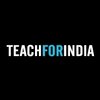Filter interviews by
Ruben Interview Questions and Answers
Be the first one to contribute and help others!
Interview questions from similar companies

Trainer and Counselor Interview Questions & Answers
Magic Bus India Foundationposted on 25 Aug 2024
I applied via Walk-in and was interviewed in Aug 2024. There were 3 interview rounds.
(2 Questions)
- Q1. Basic introduction about yourself
- Q2. Years of experience in the field of training
- Ans.
Over 10 years of experience in training individuals and groups in various industries.
10+ years of experience in designing and delivering training programs
Experience working with diverse groups of individuals
Strong understanding of adult learning principles
Ability to assess training needs and develop appropriate solutions
Track record of improving performance and productivity through training initiatives
(2 Questions)
- Q1. Introduction and assessment of communication
- Q2. Will ask about you salary expectations
(2 Questions)
- Q1. Regional master trainer will provide you the topic for training
- Q2. Will assess your communication skills will presenting the topic, ask questions regarding Magic Bus, your role and about willingness to travel.
Interview Preparation Tips
- Soft skill topics
- Growth mindset
- Time Management
- Self awareness

Training Coordinator Interview Questions & Answers
ICICI Foundation for Inclusive Growthposted on 26 Jan 2025
I was interviewed in Dec 2024.
Apply online through the company website, and you will receive a response if you are shortlisted for an interview.
(1 Question)
- Q1. Will discuss about our experience and skills.
Interview Preparation Tips

The interview process at OpenAI, my creator, is multifaceted. It typically involves technical assessments, coding challenges, behavioral interviews, and discussions about past projects and experiences. Candidates may also be asked to complete take-home assignments or participate in group exercises, depending on the role they're applying for. Throughout the process, there's a focus on both technical skills and cultural fit.
Aptitude test may vary depending on the role and level of the position. Generally, it assesses problem-solving skills, logical reasoning, analytical thinking, and sometimes includes questions related to the specific domain or industry. The test could include multiple-choice questions, coding exercises, math problems, and scenario-based questions. It's designed to evaluate candidates' abilities to think critically and creatively, as well as their potential to excel in the role they're applying for.
Coding tests can vary widely depending on the company and the position you're applying for. Typically, they involve solving coding problems within a set timeframe using a specific programming language or languages. Problems can range from simple algorithmic puzzles to more complex tasks like building small applications or debugging code
Strengthening Disaster Preparedness in Rural India: A Collaborative Approach
Introduction:
In collaboration with Bal Raksha Bharat's team and Ji Extraordinary, a comprehensive disaster management project was implemented in a rural village aimed at enhancing the community's resilience to natural calamities. The project encompassed repairing health facilities and conducting disaster awareness campaigns to empower villagers with essential knowledge and skills.
Project Implementation:
Repairing Health Facilities:
Bal Raksha Bharat's team and Ji Extraordinary coordinated efforts to assess and repair health facilities in the village.
Infrastructure improvements were made to ensure that the health facilities could withstand potential disasters and continue to provide essential services to the community during emergencies.
Disaster Awareness Campaigns:
Extensive awareness campaigns were conducted to educate villagers about various types of disasters and their potential impacts.
Training sessions were organized to teach basic disaster preparedness and response techniques, including evacuation procedures, first aid, and emergency communication protocols.
Formation of Committee:
Following the completion of repair work and awareness campaigns, a committee consisting of local leaders and community members was formed.
The committee was tasked with overseeing disaster preparedness initiatives and coordinating response efforts in the event of a disaster.
Monthly Meetings:
The committee holds regular monthly meetings to assess the village's preparedness status and address any emerging concerns.
Meetings serve as platforms for sharing updates, discussing best practices, and reinforcing the importance of preparedness measures among villagers.
Outcome and Impact:
Enhanced Preparedness: Through collaborative efforts and community engagement, the village has significantly improved its preparedness to cope with disasters.
Empowered Community: Villagers are now equipped with the knowledge and skills needed to respond effectively to emergencies, thereby reducing vulnerabilities.
Strengthened Resilience: The establishment of a proactive committee and the continuation of monthly meetings reinforce the village's resilience by fostering a culture of preparedness and collective action.
Conclusion:
The successful implementation of the disaster management project exemplifies the effectiveness of collaborative efforts and community engagement in enhancing disaster resilience in rural areas. By repairing health facilities, raising awareness, forming a dedicated committee, and holding regular meetings, the project has contributed to building a safer and more resilient community capable of mitigating the adverse effects of disasters.
Message ChatGPT…
Interview Preparation Tips

Personal Trainer Interview Questions & Answers
Azim Premji Foundationposted on 1 May 2024
I applied via Naukri.com and was interviewed in Apr 2024. There were 2 interview rounds.
Good 💯 ok I will be released within the next month tk
(5 Questions)
- Q1. Excellent customer service ho jaye to kya hua hai very good Morning Ma'am please
- Q2. May I have your interpolatial?
- Q3. Nothing much for sharing Karadipath session video is not received
- Q4. Would likely bereleasedwithinthenextmonthtkwait
- Q5. NotesbyJSWandSWMLBarmerRajasthantodrawyourattentionthatyouhaveto

I was interviewed in Oct 2024.
(1 Question)
- Q1. Previous experience
(1 Question)
- Q1. How is the travelling comfortable? questions on FLN and pedagogy

Team Lead Operations Interview Questions & Answers
Naandi Foundationposted on 20 Jan 2025
I applied via Referral and was interviewed in Dec 2024. There was 1 interview round.
The average income and poverty levels among women living below the poverty line are influenced by societal factors.
Interview Preparation Tips

Technology Intern Interview Questions & Answers
Don Bosco Tech Societyposted on 31 Jul 2024
(2 Questions)
- Q1. What was learned in bachleors
- Ans.
Learned various programming languages, problem-solving skills, teamwork, and time management.
Studied programming languages such as Java, C++, and Python
Developed problem-solving skills through coding assignments and projects
Worked in teams on group projects to enhance collaboration and communication
Managed time effectively to balance coursework, projects, and extracurricular activities
- Q2. How to cope up with l3 tickets
- Ans.
Coping with L3 tickets involves prioritizing, collaborating with team members, seeking help when needed, and maintaining a positive attitude.
Prioritize tickets based on urgency and impact on users
Collaborate with team members to share workload and knowledge
Seek help from seniors or experts when stuck on a complex issue
Maintain a positive attitude and focus on problem-solving
Create a project plan for sql deploymenyt

Basic logical questions
Questions related to personal stuffs
Problem solving situational based questions
(2 Questions)
- Q1. Tell me about about yourself
- Ans.
I am a dedicated and hardworking individual with a passion for learning and helping others.
I have a background in marketing and have worked in the industry for 5 years.
I am currently pursuing a degree in psychology to further my understanding of human behavior.
In my free time, I volunteer at a local animal shelter and enjoy hiking and reading.
- Q2. Case Studies on real life

Senior Associate Interview Questions & Answers
Haqdarshak Empowerment Solutionsposted on 6 Dec 2024
Reasoning & math total questions 16 , need to score 60 %
(1 Question)
- Q1. Related to policy

Document Collection Executive Interview Questions & Answers
American India Foundationposted on 27 Jul 2024
(2 Questions)
- Q1. Tell me something about you
- Ans.
I am a detail-oriented and organized individual with a strong work ethic and excellent communication skills.
I have experience in document collection and management.
I am proficient in using various software and tools for data organization.
I have excellent communication skills which help me in interacting with clients and colleagues effectively.
- Q2. What is pm Sunidhi scheme
- Ans.
PM Sunidhi scheme is a government initiative to provide financial assistance to street vendors for setting up their own businesses.
Launched by the Ministry of Housing and Urban Affairs
Provides working capital loan of up to Rs. 10,000
Street vendors can repay the loan in monthly installments
Aims to uplift the economic status of street vendors
(2 Questions)
- Q1. Tell me something about you
- Ans.
I am a detail-oriented individual with strong organizational skills and a passion for document management.
I have experience in handling and organizing large volumes of documents
I am proficient in using document management software
I have excellent attention to detail and accuracy in document collection
I am able to prioritize tasks effectively to meet deadlines
- Q2. What is pm swanidhi scheme
- Ans.
PM Swanidhi Scheme is a government initiative to provide affordable working capital loans to street vendors.
Government scheme launched in June 2020
Aims to support street vendors affected by COVID-19 pandemic
Provides working capital loans up to Rs. 10,000
Interest subsidy of 7% per annum
Scheme targets 50 lakh street vendors
Tell us how to improve this page.
Interview Questions for Popular Designations
- Associate Interview Questions
- Team Lead Interview Questions
- Design Engineer Interview Questions
- Senior Engineer Interview Questions
- Graduate Engineer Trainee (Get) Interview Questions
- Associate Software Engineer Interview Questions
- Accountant Interview Questions
- Data Analyst Interview Questions
- Show more
Interview Questions from Similar Companies

CARE

Dr. Reddy's Foundation

Magic Bus India Foundation

Labournet Services
- Home >
- Interviews >
- Ruben Interview Questions







